The Saturday Read: Sea change
Inside: Reform's big night out, JMW Turner, Mark Carney, Kneecap, Russel Brand's day in court, Harvard vs Trump, and the Great British nickname.
Good morning. Welcome to the Saturday Read, the best of the New Statesman, in print and online this week. This is Finn with Nicholas and George.
In this week’s local elections the Conservatives suffered nothing short of calamity, losing every council they previously held. Meanwhile, it’s a good day to be Nigel Farage. His party won a parliamentary by-election (in what was until last year a Labour safe seat), nine councils and two mayoralties. Is this finally Farage’s ascent to the political mainstream? It’s possible. At the very least, as my colleague George Eaton wrote this morning, this is the realm in which he “can now dare to dream.”
Meanwhile, I spent yesterday morning at Westminster Magistrates’ Court to watch Russel Brand’s pre-trial hearing. He was mobbed by press on arrival, there weren’t many fans present. I found it strange to watch a man so famous for his distinct voice forced into a docile silence by court procedure. For the first time Brand, perhaps more famous than he has ever been, didn’t have much to say.
As ever, thanks for reading and have a great weekend.
1—“Powell’s bastard heir”
When Enoch Powell rose to prominence in the late 1960s, the left scrabbled to understand what it all meant. Now, Oliver Eagleton reapplies Tom Nairn’s seminal 1970 essay on “the New Right” to Nigel Farage, in one of our most ambitious interpretations of the man yet. NH
While both ideologies have sought to revive their cherished national myths via racism, in Powell’s time national decline was a relatively recent, and seemingly reversible, phenomenon – which helped to legitimise his romantic vision. Today, Britain’s subordinate position in the world-system is the background condition of its political life: the very basis of its neoliberal order. Nothing resembling real sovereignty, let alone supremacy, is on the cards. As a result, there is little romance to contemporary nationalism. Its primary sentiments are rage and despair. The rioters descending on asylum shelters aren’t chanting AE Housman.
2—“Deepening political divisions”
Donald Trump has achieved something remarkable: winning an election for a political opponent in a country that is not even his own. Well, that’s one way of interpreting Mark Carney’s victory in the Canadian election. But there is more to it than that, the New Statesman’s resident Canadian Megan Gibson explains. FMcR
Then there was Carney’s main opponent, Conservative leader Pierre Poilievre. Until very recently, Poilievre seemed a certain bet to become Canada’s next leader. As Luke Savage wrote in the New Statesman recently, Poilievre’s belligerent political style seemed like an abrupt change for Canadian politics, as the politician “cut a straightforwardly ideological path to the top job and has maintained this right-wing posture ever since. He successfully captured much of the energy generated by the so-called Freedom Convoy. He has refused to back down on highly controversial and unpopular positions such as defunding Canada’s public broadcaster, CBC, and has planted his flag firmly on the Trump-adjacent right.”
3—“Goliath against Godzilla”
The left has rallied to the side of Harvard in its battle against Donald Trump. Speaking out on behalf of this bastion of elite privilege leaves Lee Siegel with a bad taste in his mouth. But more dangerous still is the Trump assault on America’s third level. NH
The dazing result is to put Jews, yet again, in a perilous historical situation. Nazis blamed Jews for civilisational decline. The American right is using the mirage of a general hostility to Jews to justify an attack on American civilisation. Jews are now a pretext on the way to being a scapegoat. Steve Witkoff, Stephen Miller, the bouncy Howard Lutnick, the Kushners – the seeming Jewish presence accompanying Trump’s war on America is plain for all anti-Semites to see and conspire about. Meanwhile the Jews who were destroyed in Europe as a pretext for tyranny are now being used by an American would-be tyrant as the pretext for enabling another destruction.
4—“Every punk has their price”
I was quite surprised when I looked at Kneecap’s Spotify stats. They may have generated more think pieces than listens this month. The trio got the world talking by railing against politicians, and for Hamas(!?). But now they are saying it was all sort of a joke? Finn has a look, and doesn’t find much to laugh about. GM
“Guilty conscience? No thanks!” Kneecap boasts on “Guilty Conscience”. Yet for all the radical posturing, casual reference to rebel IRA slogans, balaclava’d members, and rhetorical violence, it seems the band is indeed in possession of a conscience. But it is one that begins and ends with commercial viability. When faced with consequences, the consummate Irish punks became rather obsequious indeed. We might wonder whether the one thing worse than saying terrible things is saying terrible things and not even meaning them in the first place. Call it hollow, cynical, dangerous – whatever. This is nastiness without the saving grace of conviction.
5—“Avant la lettre”
It is the 250th anniversary of JMW Turner’s birth. And who better than Michael Prodger to explain how he totally redefined what landscape painting was. Michael and I exchanged notes on our favourite Turner works in the office on Thursday, and learned that Michael’s tastes are more refined than mine. FMcR
The mature Turner was never a painter of line but always one of mass, tone and light. For him the four elements were interchangeable; he treated land as if it were air and air as if it were water. “Indistinctness is my forte”, Turner acknowledged, but he used that indistinctness to express his pantheistic stirrings. The mists and vapours, deliquescing views and washes of colour that took his paintings to the edge of abstraction and so appalled his contemporaries are not just emotions but expressions of the numinous. After all, as he famously said, “The sun is God.”
To enjoy our latest analysis of politics, news and events, in addition to world-class literary and cultural reviews, click here to subscribe to the New Statesman. You'll enjoy all of the New Statesman's online content, ad-free podcasts and invitations to NS events.
Can the government’s AI Action Plan drive innovation and growth in the UK and what does it mean for businesses, policymakers and the economy?
Listen here to our 20-minute partner podcast to understand if Keir Starmer’s new 50-point AI Opportunities Action Plan can drive national growth and transform public services.
6—“Dysfunction and antagonism”
The boats, the boats, the boats… stopping them, smashing the gangs, Rwanda, the ECHR. Megan K reviews a new book on one of our nation’s angriest divisions. Sunak says “nothing will stand in our way,” a hopeful crosser says “nothing can stop me”. GM
The French authorities stood on the shore watching the dinghy float out to sea. They are not allowed to follow those attempting to cross the Channel into the water and so were forced to stay put as this dangerous vessel drifted further away from the shore. Close by, watching this scene unfold, were members of the BBC’s Home Affairs team, who had captured the scene on camera. It later emerged that five people onboard the vessel had died; two had drowned making the crossing, while three others were crushed in the turmoil. Among the dead was a seven-year-old girl.
7—“The big three”
Churchill, scowling and overcoated; Roosevelt, cigarette between sickly fingers; Stalin, uniformed and brutish. Behind the iconic photograph of the three victors of the Second World War lay a gargantuan diplomatic effort. Richard J Evans reviews a new history of the telegrams, typists and table talk that won the war. NH
The apparently neutral country of Francisco Franco’s Spain is the source of many entertaining details. Bouverie recounts how the nervous British ambassador to Spain placed a ladder against the embassy garden wall every night before going to bed in case he was arrested and handed over to the Germans. He need not have worried: the British government spent an astonishing £3.5m in the first year of the war alone bribing Spanish politicians not to intervene in the conflict. Bouverie perhaps puts it too strongly when he says that the Spanish dictator Franco was firmly in the German camp… After meeting with Franco to negotiate an alliance in October 1940, Hitler told his staff he would rather have several teeth pulled than go through the frustrating ordeal again.
8—“Civil servants became the enemy”
We have all turned on “the blob”. It is a banality that Whitehall’s legions of complacent, obstructive pre-pensioners are much to blame for our national mood of inertia. In this week’s cover story, William Davies reviews the long history bureaucracies, and their strange tendency to enrage the masses. GM
It may be tempting for social democrats and progressives to write this all off as the latest wave of neoliberal attacks on the public sector, escalating in some cases to the misanthropic rage of egotistical men in the latter stages of midlife crises. And those suspicions are not wholly unfounded. But it is also worth recognising the full extent of the current consensus that government bureaucracy is bloated and failing, which now includes both populists and moderates, left and right, Westminster insiders and outsiders.
George’s Best of the Rest
Quinn Slobodian: Maga’s sinister IQ obsession
Marina Hyde: Starmer caddies for Trump
Ross Douthat: American condition
Mark Seal: The last renaissance man
Kelefa Sanneh: Rise of the emo cowgirl
Adrian Nguyen: Great American Psycho
Angus Colwell: The Dubai-ification of London
Meghan reveals why she and Harry call each other ‘M’ and ‘H’. Headscratcher.
Student rescued from Mt Fuji goes back for phone: rescued again
And with that…
“Free Gear Keir”, “No-Brainer Angela Rayner”, “Mastermind Lammy” and, the best of the lot, “Rachel from Accounts”. In an uncrowded field, the greatest purveyor of political nicknames in the country is Reform MP Lee Anderson. It’s crude stuff for sure. But when I went to Reform conference the arena roared with laughter for every single one. The left doesn't like to go in for this sort of thing. It’s coarse, abasing, with a whiff of populism about it. But the fact is that it speaks to a constituency the left otherwise has very little dialogue with, people for whom the “Punch and Judy politics” is really the best bit.
It was good, then, to see Paul Nowak, the general secretary of the TUC, sling some soil at Nigel Farage this week, calling him a “public school-educated ex-metals trader cosplaying as a champion of the working class”. Ok, it’s not exactly “Sleepy Joe” or “Lying Hilary”. But “trader” has some potential, getting at that fudgy, under-examined bit of Farage: his City roots, his ideological flightiness, his opportunism. As Labour pick themselves off the canvas after another bruising from Reform in the locals, they could do with a bit of Nowak’s pluck. After all, “when they go low, we go high” didn’t work that well in America.
The New Statesman is home to the finest writing on politics, culture and ideas. To stay up to date, subscribe using the link above.
— Finn, Nicholas and George.





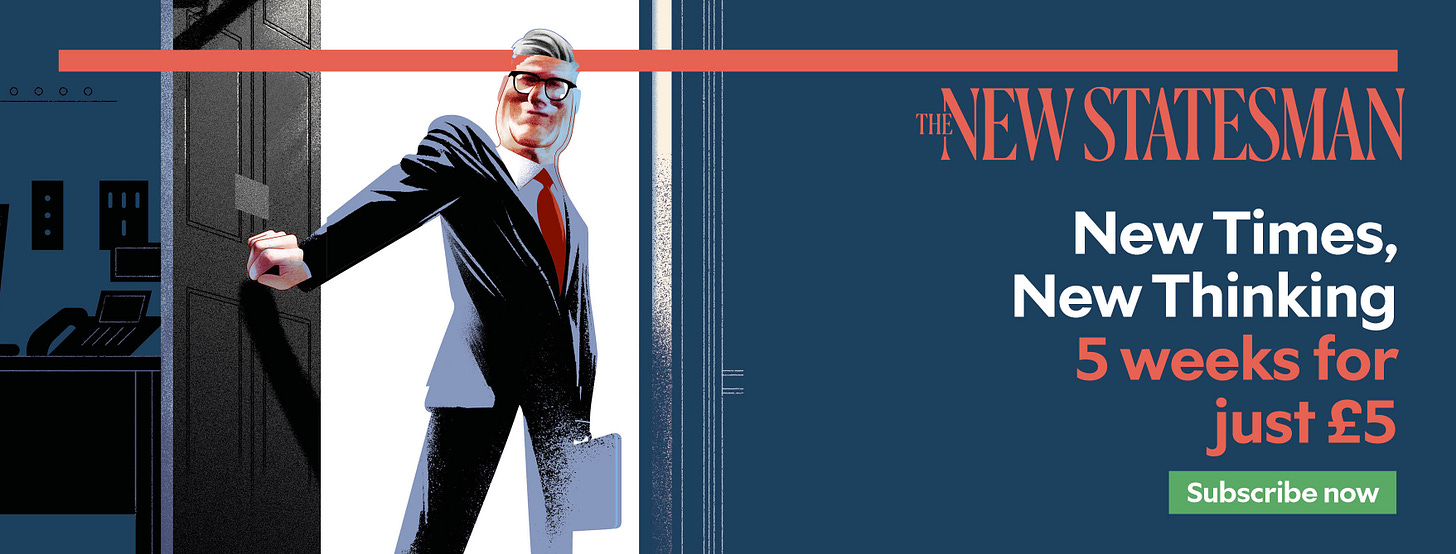

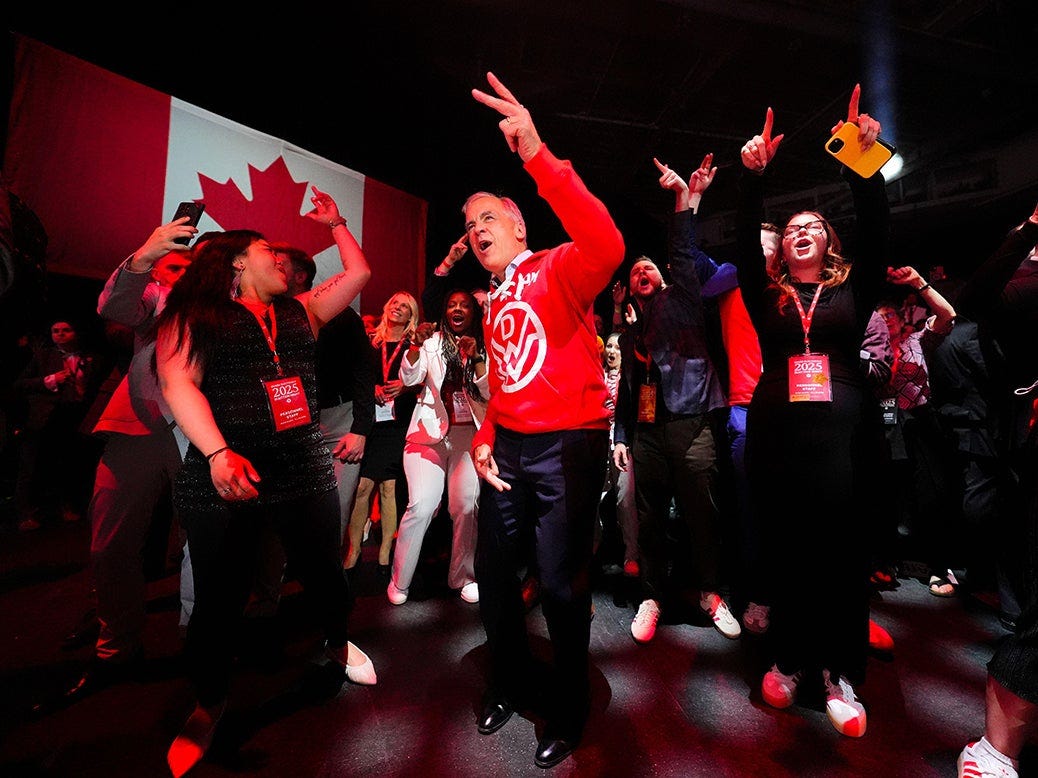
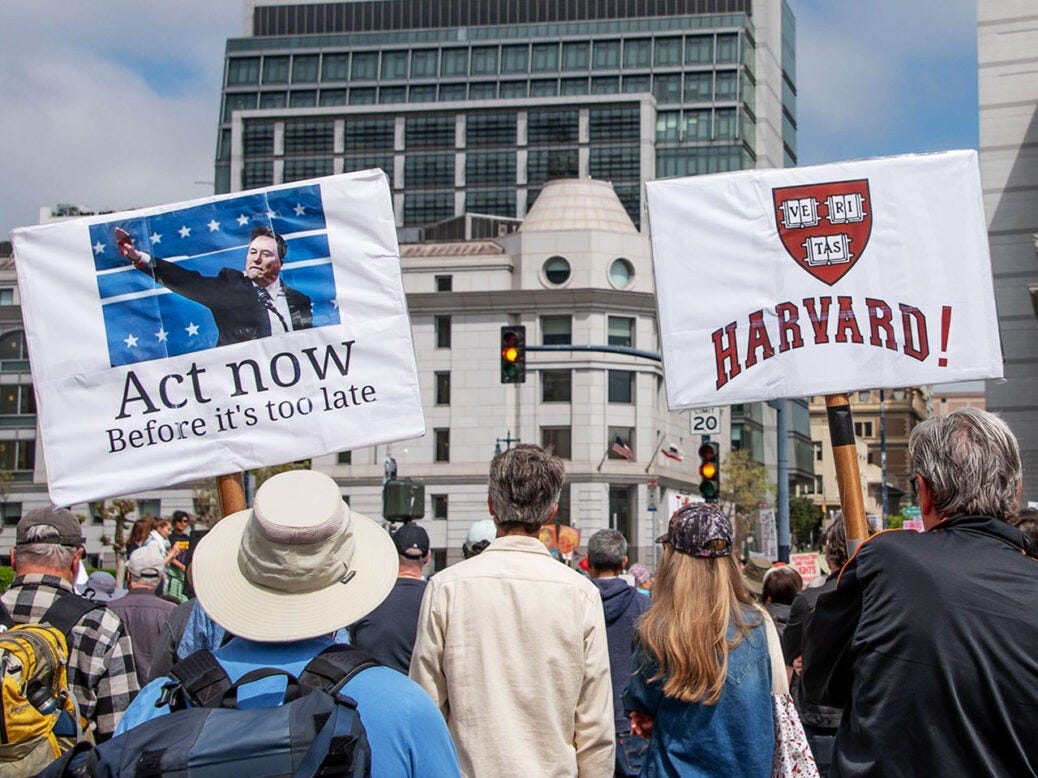



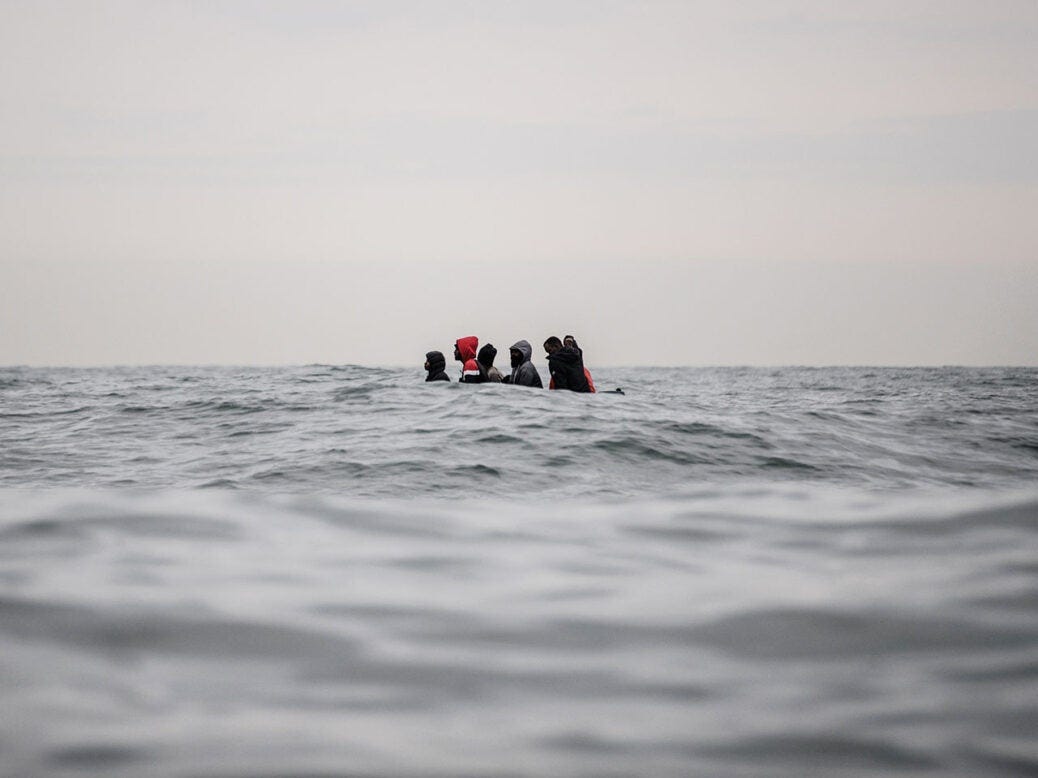
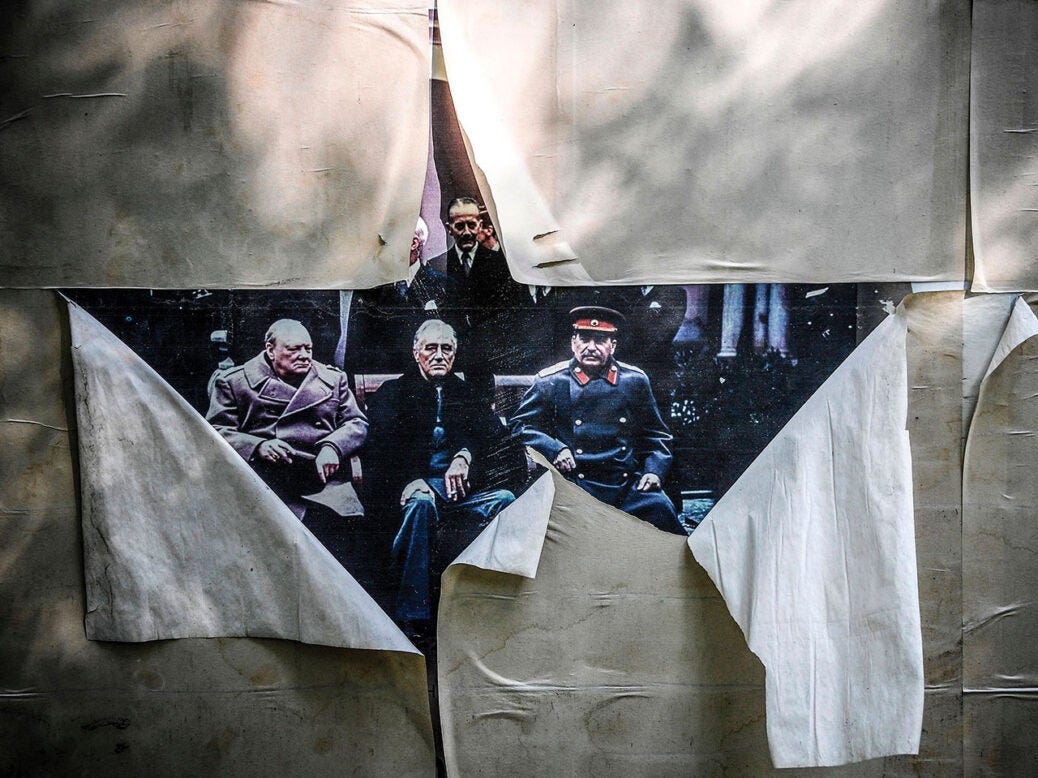
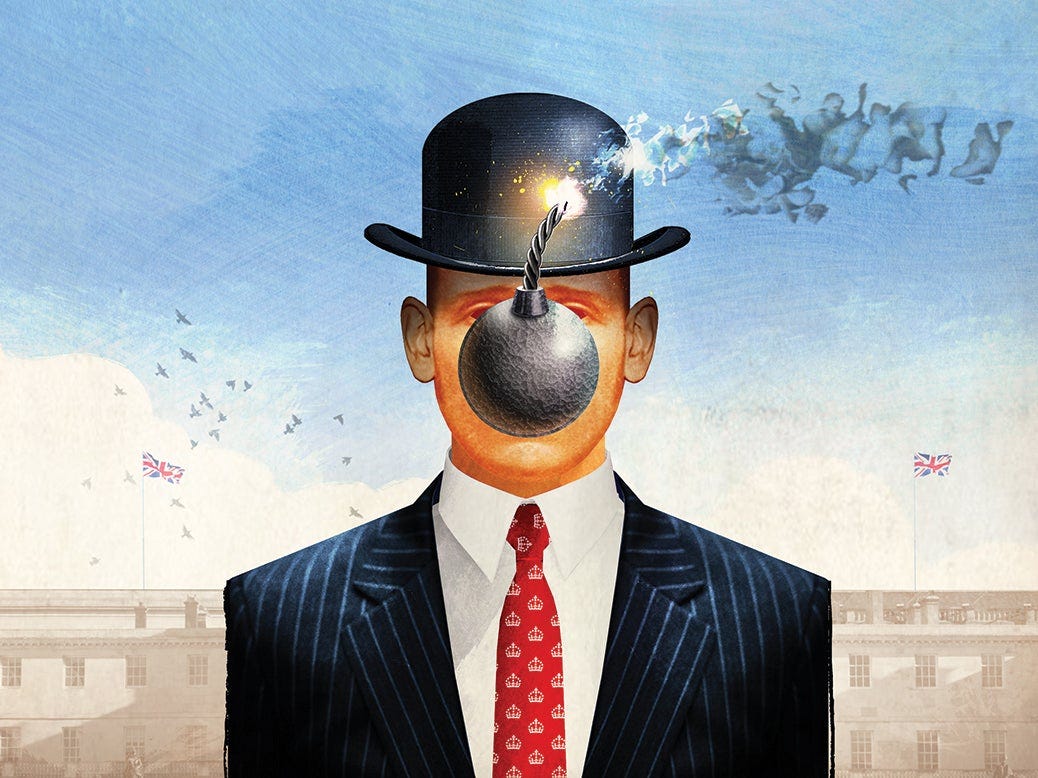

Going after Irish Republicans who support Palestine in the New Statesman? What year is it?
What those on the left or so called progressives have never seemed to understand is what really drives the anti-immigration impulse of what ought to be their ''natural'' voters. Yes there is racism and xenophobia but what really drives it is the fact that each new group of immigrants inevitably settles in the areas that are least able to cope and both the local population and the incomers are left sink or swim.
It has long seemed to me that if government encourages and often organises immigration then it should also take responsibility for those that arrive. Perhaps something like the billetting officers that placed evacuees during WW2. I would suggest that they start in the under occupied properties in places like Belgravia and the wealthy leafy suburbs of the prosperous cities instead of leaving them to find places in already poor and deprived areas.